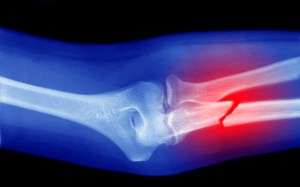Last week, U.S. Secretary of Treasury Steven Mnuchin explained how and when the coronavirus emergency stimulus checks would be distributed to Americans. Now, with payments expected to begin going out within the next few weeks, many people are wondering if they can track their payment and see when it may arrive. It may be possible, but with a little bit of homework.
The stimulus checks sent to most Americans in the coming weeks are a part of the U.S. government’s $2 trillion coronavirus relief package. Emergency funds will be sent to individuals and families based on their 2018 and 2019 tax filings. During Thursday’s COVID-19 press briefing, Mnuchin explained that those who provided the IRS with direct deposit information for their tax returns would be the first to get their stimulus payments, which would be sent out that way.
Videos by PopCulture.com
In the near future, Mnuchin said that the IRS intends to create a webpage where Americans can submit new or updated direct deposit information for their stimulus checks. Those direct deposit payments will begin going out in mid-April, and will hopefully go quickly. All others will be conventional checks sent by mail, and may take weeks or even months longer to arrive.
So far, the IRS has set up a dedicated webpage for information on the coronavirus and the upcoming stimulus payments. This page does not have a feature for tracking the status of your check, but that could change. The IRS already has a similar service available for tax refunds, which can be viewed in real time now.
For now, the best thing to do is to make sure your 2019 taxes have been filed, and you have included direct deposit information there. If not, you may want to bookmark the IRS’ coronavirus page and check there often for a chance to provide your financial information. Finally, sites like CNET have created calculators for estimating your stimulus payment, and step-by-step guides for making sure you get the most out of the money.
The coronavirus stimulus payments will not be taxed, even for Americans who owe back taxes to the IRS. The checks will go up to $1,200 for individuals or $2,400 for couples. Those who claim children as dependents can get up to $500 for reach child.
The payments start reducing for those with an adjusted gross income of more than $75,000. At that point, for each additional $100 the person makes, $5 will be deducted from the stimulus check. This means that Americans making $99,000 per year or more will not receive anything from this relief package.
For the latest on the COVID-19 pandemic, visit the CDC’s website.









